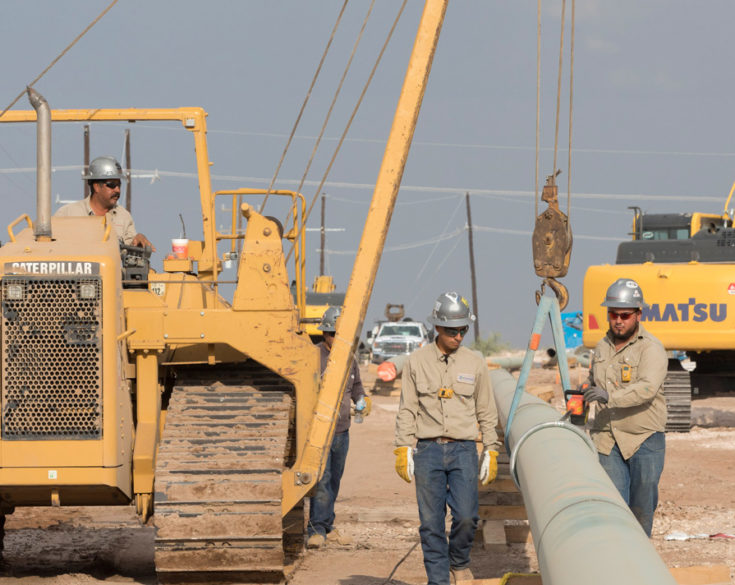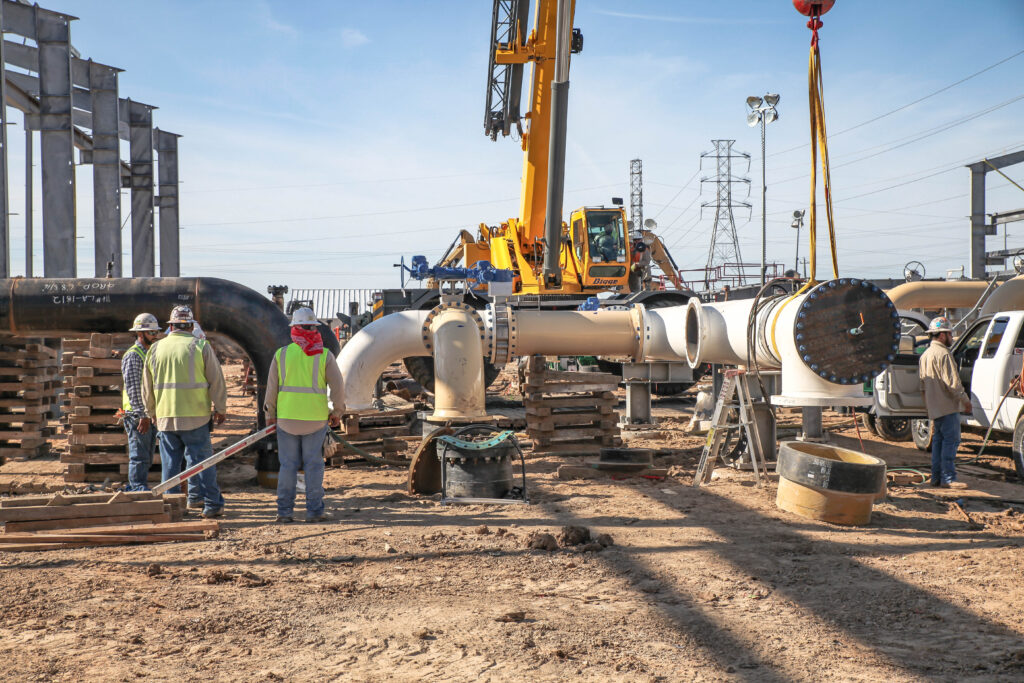Fascination About Permian Basin Pipeline Construction
3 Easy Facts About Permian Basin Pipeline Construction Described
Table of ContentsPermian Basin Pipeline Construction - An OverviewPermian Basin Pipeline Construction - TruthsGetting The Permian Basin Pipeline Construction To WorkThe Facts About Permian Basin Pipeline Construction UncoveredFacts About Permian Basin Pipeline Construction RevealedThe Best Guide To Permian Basin Pipeline ConstructionThe Single Strategy To Use For Permian Basin Pipeline Construction
Cured-in-place pipe (CIPP) is a trenchless technology used to mount water, sewer, and other pipelines without calling for major excavation or invasive digging. The procedure begins by putting a liner right into the existing pipework, which is after that loaded with resin that sets to create an irreversible pipeline within the existing pipe.At MaxLiner United States, we comprehend the advantages of making use of CIPP, that include its price, speed, and marginal disturbance throughout installment. This makes it a perfect option for service providers, plumbing technicians, organizations, and municipalities wanting to reduce downtime while setting up new pipes. One of the primary advantages of CIPP is its cost savings on labor and tools, resulting in an extra cost-effective solution than conventional pipeline replacement techniques.

Instead, a liner is put into the busted pipe and healed in location with warm, creating a smooth repair service that provides long-term defense against root seepage, rust, opening damages, and other typical concerns with existing pipelines. Not only does this technique remove the demand for extensive digging, however it likewise eliminates the prospective risks connected with contaminated materials removal.
Getting My Permian Basin Pipeline Construction To Work
Thus, expenses have a tendency to be lower than changing entire sizes of piping with open-cut installations even when considering the cost of liner materials. As a result of its low ecological effect and cost financial savings potential, cured-in-place pipeline installment is coming to be progressively prominent as a choice to typical repair in numerous markets.
When it pertains to cured-in-place pipe (CIPP) setup, many advantages come from its very little time and expense. Most importantly, CIPP installments can be established in a portion of the moment it would certainly take for typical pipeline replacement due to the fact that no excavation is called for - Permian Basin Pipeline Construction. Instead of excavating into the bordering soil and getting rid of existing pipelines, CIPP makes use of modern trenchless technology to set up material linings or polyester fiber tubes inside existing pipelines
The Definitive Guide for Permian Basin Pipeline Construction
This aids to minimize downtime and maintain your project on track, leading to time cost savings that would not have actually been possible with traditional pipeline substitute systems. Whether getting rid of smaller sized sections of piping or doing total relining projects, this approach has particular benefits when it pertains to expense. Not just is equipment rental removed since no excavation is needed, however so are website repair prices considering that a minimal surface fixing might be called for after installation.
For that reason, with marginal time and expense required for installation, cured-in-place pipeline installment is a wonderful alternative for reducing labor expenses without compromising quality job. As we'll discuss in the complying with area, this type of installment offers substantial benefits when it involves reducing the original source disturbance around homes and businesses.
The smart Trick of Permian Basin Pipeline Construction That Nobody is Talking About
This trenchless installment is a lot easier to execute than typical pipeline laying. As the name implies, the majority of excavation and relevant site prep work is avoided due to the fact that the brand-new pipes are fed via existing avenues. This makes it feasible to mount below ground pipelines in a portion of the time needed for the a lot more standard digging technique, which can develop unnecessary interruption to the atmosphere, local roadways, paths, nearby homeowner, etc.
Occasionally, it might take a little excavating if these accessibility points are not already mounted in existing upkeep holes or capture containers. The result must still be much less turbulent than excavating lengthy trenches, yet something to think about before dedicating to this setup (Permian Basin Pipeline Construction). Generally, cured-in-place pipe setup is practical when very little interruption is wanted since most of the below ground facilities remains intact while offering renewed stamina and integrity to existing pipes


The cured-in-place setup procedure starts with inspecting the pipe in concern to establish whether any kind of damages exists or needs substitute. Afterward, if essential, cleaning must occur inside the pipeline so that all product build-up is gotten rid of and all surface areas are smooth and uncontaminated before lining setup. Once these steps are finished, an unique resin-coated felt or crossbreed really felt and fiberglass textile is placed right into the pipeline and uniformly distributed along its length.
An Unbiased View of Permian Basin Pipeline Construction
Curing (either ambient, warmed water or air, or UV) is presented into television when the lining setup is total, healing and shaping the resin fabric around the old pipe's form. It needs to be noted useful source that extreme pressure needs to be avoided at all expenses since it can cause further damage to the system.
This comprehensive section concerning the 'Cured-In-Place Installment Refine' has actually described its step-by-step treatment. By comprehending what enters into this process and its problems, we can value how advantageous it can be for lots of piping repair work - Permian Basin Pipeline Construction. Now let us move on to explore what kinds of materials are utilized in this procedure in our next area
How Permian Basin Pipeline Construction can Save You Time, Stress, and Money.
The appropriate product can dramatically impact the task, including cost-effectiveness, longevity, efficiency, and performance. Polymer linings are typically chosen for CIPP since they are highly resilient and immune to corrosion and damage. They can also last anywhere from 10 to three decades, depending upon the high quality of the materials utilized.
It is often much easier, much less disruptive, and much more cost-effective than conventional repairs. One of the primary benefits of CIPP pipeline installation compared to the conventional technique of reducing out and changing any kind of broken pipe sections with new material is that CIPP pipeline does not require digging or digging deep into the surrounding locations.
This minimizes the time and labor needed for complex repair tasks. CIPP products are thinner than areas of the new pipeline, so they need really little content area while using exceptional long life and durability contrasted to other methods of repairing broken pipes. While CIPP installment provides some distinct advantages over conventional approaches of fixing pipes, it can have specific constraints relying on which type of details scenario requires it.
Not known Details About Permian Basin Pipeline Construction
Generally, CIPP pipeline installment offers a number of benefits when it comes to conserving time, money, and initiative throughout pipeline fixing jobs. These advantages make it an attractive option for those searching for quickly yet trusted means to attend to broken pipelines in the house or in company settings. In the following area, we will certainly discuss a summary of cured-in-place pipeline installment in better information to provide you an even much better understanding of its many benefits.